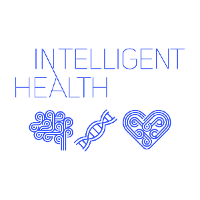In an era where Artificial Intelligence (AI) and computer vision are revolutionizing various sectors, healthcare stands as a significant benefactor. Particularly, the potential of AI and computer vision in detecting skin diseases is a hot topic of discussion, with promising advancements. As per forecasts, computer vision is projected to experience a 12-fold growth in the global healthcare market from 2020 to 2027, reaching a staggering $12.3 billion. Skin disease detection using AI and computer vision symbolizes the triumph of technology over traditional diagnostic methods, bringing forth numerous advantages.
The Hurdles: Navigating Challenges in AI-Powered Skin Disease Detection
However, as with any innovation, implementing AI in skin disease detection comes with its share of hurdles. Unicsoft, in its journey of innovation, has encountered several business and technical challenges:
- Analyzing Complex Skin Disorders: Skin disorders exhibit a wide variety of symptoms, severity, and underlying causes. This diversity makes their analysis a complex task.
- Empowering Patients: An AI solution must be patient-centric, empowering them to make timely decisions and seek necessary medical consultations.
- Assisting Specialists: The AI system should be capable of providing primary diagnostics and recommendations to specialists, enhancing the overall treatment process.
- Cost-Effectiveness: The solution must be cost-efficient, saving time and money for both the client and the end-users.
- Algorithm Selection: From a technical standpoint, choosing the optimal algorithm to analyze multiple skin diseases, while ensuring its scalability for future iterations, is challenging.
- Real-Time Functioning: The solution should function in real-time for individual users, with the image recognition and classification model constantly recalculated by an AI engine.
- Image Collection and Processing: Collecting medical images from open sources like Dermnet.com and processing them to meet the model's needs is a considerable challenge.
- Prototype Deployment: Deploying the prototype in a user-friendly environment such as Jupyter notebook also presents unique challenges.
Tackling the Challenges: Unicsoft's Approach to AI Prototyping in Skin Disease Detection Solutions
Despite the complexities, Unicsoft, with its rich experience, has been successful in implementing AI for skin disease detection. Unicsoft's approach includes building a prototype for the Skin Diagnostic Model based on Computer Vision algorithms. It is designed to work in real-time for individual users, with the processes of image recognition and classification model constantly recomputed by an AI Engine.
The Power of Proof of Concept (PoC)
Unicsoft lays significant emphasis on the development of a PoC, ensuring the feasibility of the proposed solution before a full-fledged rollout. The PoC approach minimizes risks, validates assumptions, and forms the foundation for the project roadmap.
- The heavy lifting is on us. We handle the entire process for you and adapt to your requests throughout the PoC lifecycle.
- Guidance at every step. Our team can walk you through the entire process: from discovery and data collection to model training and scaling.
- Stress-free compliance: The datasets and AI technologies are secure and compliant with GDPR and EU AI Act recommendations.
- Predictable outcomes. We set a clear roadmap with KPIs from Day 1 and then document every development step.
- High speed, low cost. The Lean methodology and low-code tools allow us to deliver a testable prototype without breaking the bank within weeks, not months.
- Undisputed quality. Unicsoft is ISO 25010 certified. Our quality control system covers a wide range of characteristics, including functional suitability, reliability, performance efficiency, usability, security, compatibility, maintainability, and portability for every project we build.
Unicsoft's Journey: Experience and Results
Unicsoft, with its rich experience, has successfully navigated the challenges and implemented AI for skin disease detection. The recent project has showcased promising results:
- Speedy Diagnostics: Unicsoft's AI model processes thousands of images within seconds, thereby providing rapid primary diagnostics.
- Accurate and Personalized Predictions: The machine learning model is tailored to provide high accuracy and effectiveness in personalized and targeted predictions.
- Empowered Decision-Making: It empowers patients to make decisions in time and enables healthcare specialists to receive primary diagnostics and recommendations.
- Cost-Effective: The AI model is a cost-effective solution that saves time and money for both the client and end-users.
To delve deeper into Unicsoft's pioneering work and glean insights from their journey in AI-powered skin disease detection, we invite you to visit the detailed case study at this link.
The Benefits: Applying AI for Skin Disease Detection
AI vision has emerged as an unparalleled force in healthcare, promising an array of benefits ranging from enhanced safety compliance to cost savings and beyond.
- HIPAA and Safety Compliance: AI-powered facial identification tools minimize treatment errors, while video data analysis can identify breaches of regulations such as HIPAA and OSHA. This leads to improved safety, reduced insurance rates, and lower costs.
- COVID Protocols Compliance: Computer vision models trained to monitor adherence to cough, PPE, and hand-washing protocols ensure healthcare workers maintain safety and hygiene standards.
- Training and Human-Error Prevention: AI models can assist junior doctors, improving the quality of diagnosis processes and reducing stress. This not only minimizes human errors and associated costs but also mitigates reputation risks.
- Early Diagnosis: AI image recognition models, trained by medical professionals and deployed by operators with basic imagery capabilities, can facilitate self-diagnosis, encouraging individuals to monitor their health conditions proactively.
- Enhanced Patient Experience: For patients, the implementation of computer vision in healthcare means faster admissions, access to self-service kiosks, and remote health monitoring. More importantly, computer vision helps save lives, making treatments less aggressive, traumatic, or expensive.
By leveraging these benefits, the AI-powered PoC approach in skin disease detection offers a promising avenue to transform healthcare delivery and patient outcomes.
Conclusion: Investing in AI for Skin Disease Detection
The advent of AI and computer vision in skin disease detection marks a significant leap forward in the field of dermatology and healthcare at large. This technology is not just a trend, but a sustainable solution with enormous potential. Its ability to offer early and accurate diagnoses, improve compliance, enhance patient experience, and reduce costs makes it an attractive investment.
If you're considering implementing AI in your healthcare practice, particularly with the PoC approach, Unicsoft is here to guide you. The team of experts can offer professional consultancy, drawing from the wealth of experience in successfully navigating the challenges of implementing AI for skin disease detection.


